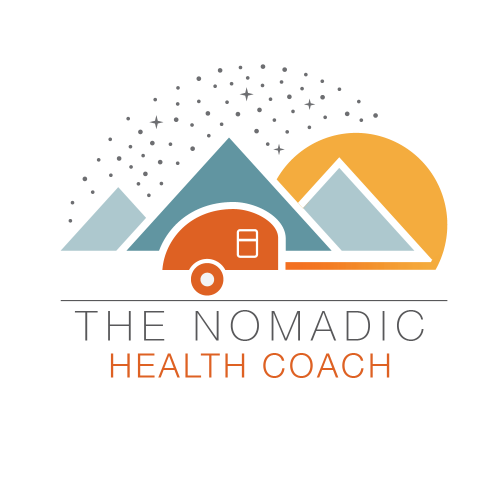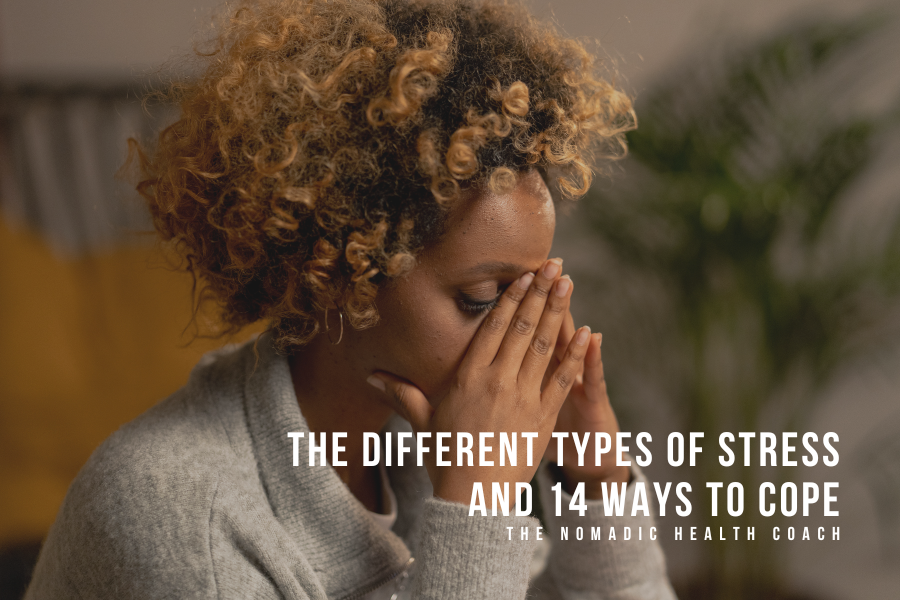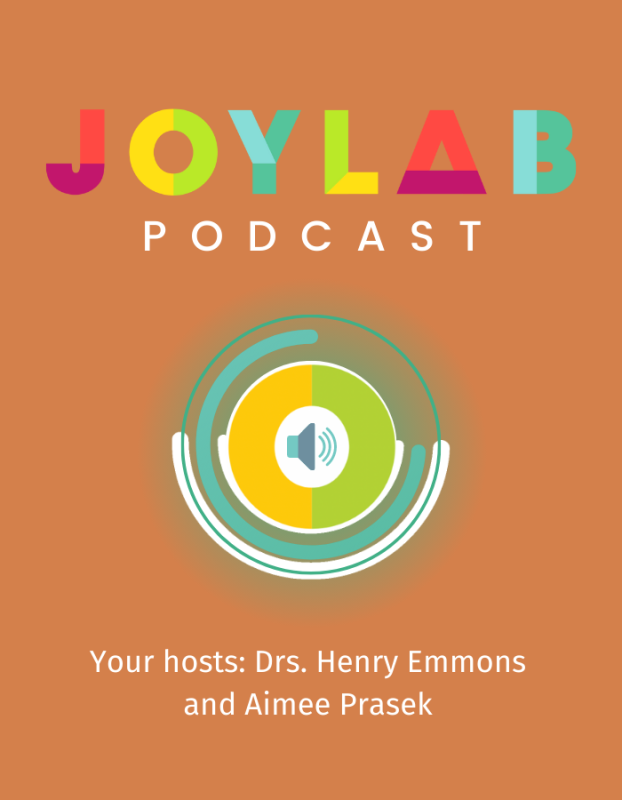Understanding what stress does to our bodies may be the key to changing how it affects us. (9 minute read)
Stress. How often do you use the term? It’s become such a common word to us that we really don’t even notice how often we say it. There are many of us who wear our stress like a badge of honor and use it as an excuse to justify or excuse poor decisions and bad behavior. But that’s not a healthy way to live. In order for us to manage the stress in our daily lives, we need to understand what it’s doing to us first.
There are two different types of stress; positive and negative.
You might be surprised to hear that there is positive stress, but we all experience it. The positive type of stress is a normal reaction to exciting events in our lives such as falling in love, buying a new car, or getting our dream job. These types of positive stress could actually be called “nervous excitement” and by changing our verbiage around it, we could shift the way we understand what we are experiencing.
But stress is also hardwired into our bodies as a survival technique and a means of protection. When a stress trigger happens, the sympathetic nervous system (SNS) signals the “fight or flight response,” which prepares us to take action and avoid danger. This is a negative type of stress and one we are all too familiar with. With negative stress, our bodies don’t understand if we are being chased by a bear or being chewed out by our boss. The stress response from our bodies—if we are being chased by a bear—is a perfectly healthy response because it’s an emergency. But if our bodies are getting consistent stress signals from everyday issues and anxieties, we’ll burn ourselves out over time. Many of us have experienced this in our lifetimes, and perhaps, more than once. This is not normal and something we need to pay attention to.
Negative stress can cause:
- Mood issues, including anger and depression
- Lack of energy
- Slow recovery from illness
- Insomnia and sleep issues
- Addiction
- Poor immune system
- Accelerated aging process; internal and external
- Increased blood pressure
- Stomach cramps
- High cholesterol
- Acid reflux and/or nausea
- Risk of heart attack
- Loss of libido
- Increase of fat storage, weight gain
- Decrease of sperm production in men
- Disrupted hunger cues and excessive cravings
- Absent or irregular menstrual cycles in women
- Joint and muscle pain
There are three stages to stress: the alarm, the resistance, and the exhaustion stage.
1. THE ALARM STAGE
You know that burst of energy we get when something stressful happens? That’s our body going into panic mode. Our heart beats faster and sends more blood to our arms and legs in case we need to fight or flee—like if we had to run from the bear. Our SNS is activated to protect us and our brain triggers our adrenal glands to secrete cortisol, giving us a boost of adrenaline which increases our energy in order to fight or flee.
As our stress levels rise, there is an increase in our pulse, blood pressure, blood sugars, blood fats, respiration, sweating, and pupil dilation. When our stress is physical (like being chased by that bear) we’ve actually got to fight the fight or run away, and so we utilize those biochemical changes. But most often we’re sedentary when the stress is coming at us; anxiety at work, relationship issues. Our adrenaline is going up, up, up, but the biochemical changes that drive it aren’t being utilized. What happens is that our bodies have to adapt to being sedentary when it’s getting the message that it needs to be moving and utilizing the fuels it needs. So now we are in the SNS zone and it’s communicating to every cell in the body that our life is in danger. Our body’s perception is that it needs to fuel us to get out of danger. But were not actually running away from a bear, we’re sitting at our desks. Our bodies make the fast burning fuel available (stored glucose) and it comes out to fuel us, but we don’t utilize the fuel, because, again, we’re not actually running from the bear. This puts us in a consistent adrenaline rush.
2. THE ADAPTIVE/RESISTANCE STAGE
After the initial stressor response, our bodies attempt to return to its stable state, or homeostasis. But when our reactions to stress are too strong, or happen to trigger too often, our bodies stay in that high alert stage. Now we are under consistent stress and our bodies build up a resistance and tolerance to it. Our bodies are learning to “coexist” with our stress and it creates an adverse affect on us and our health. This tolerance lowers our immune system and makes us more prone to illness. Basically, the more tolerance or resistance we build up to stress, the less we can fight off a virus, illness or infection. Have you ever noticed that during stressful times you typically catch a cold? Well, this could be why.
So next time you decide to push through a stressful time (because in truth, sometimes we have no choice), try and support your body as much as possible. Take a calming bath when you can, make sure you are eating as healthy as possible, and drink plenty of water. Easier said than done, I know, but remember that you still have a choice on how you react to the stressors. Don’t let it be an excuse to make poor choices. If you know a stressful time is approaching, then plan ahead to support yourself. Stock your fridge with healthy, immune-boosting, comfort foods, plan for self-care time, and stay away from the news and other negative triggers. And while alcohol may sound like a quick answer for relief, it actually will cause more anxiety and depression the day after.
3. THE EXHAUSTION STAGE
This is when the body continues to function in it’s anxiety stage and never returns to homeostasis, or rest. We never give it a chance to relax and reboot. Our emergency resources are completely depleted and our body, quite literally, shuts down. This is a total and final burnout stage. Sound familiar? We’ve pushed through and tolerated the stress far longer than our bodies should cope with such consistent and high demands. We have been running from the bear for an unnatural amount of time and finally turn around, our bodies exhausted and limp, and whisper, “Fine. Eat me. I really don’t give a f*ck.” Sadly, at this point, we have already caused plenty of damage to our bodies and the bear just turns and walks away.
Because let’s be honest, even the bear thinks we’re undesirable at this point.
We may not notice the effects the first time we “push through” the stress, but after the third or fourth—or tenth—time of doing it, an illness may strike and we’ll say to ourselves, “well, that came right out of the blue.” But the truth is it only came out of the oblivious.
Just as the SNS turns on the “fight or flight” response, the parasympathetic nervous system (PNS) turns it off. The PNS helps our body to relax and rest which is critical to our health and well-being. Stress isn’t going to just “go away”, especially in our fast-paced world, but we can take steps to stop the destructive cycle of it. In fact it’s vital that we do. We have to learn to make conscious choices and implement new habits in order to do this. There is no magic remedy or a one-size-fits-all approach to this. We have to practice and find out what works best for ourselves. I may choose meditation or yoga, you may choose gardening, running or going for a silent walk in nature.
Finding ways to relax is key, yet it’s hard to do when our lives are so crazy. Adding “relaxation” onto our already long list of to-do’s only adds another stressor. We literally become the center of our stress and it’s hard to see what’s happening to us objectively. There are ways, though, to activate our PNS and detach from it.
Here are a few ideas to activate our relaxation response and find some peace. This is vital for our healthy future because living in chronic stress disrupts our bodies natural balance.
- Discover your Resilience Type with the Resilience Quiz over at Natural Mental Health. After completing the quiz, you can get your free tailored mini-course, full of integrative practices and supplement ideas to help you reclaim your most resilient self.
- Organize your work and living spaces to be clutter-free, peaceful environments. Looking at clutter creates chaos in our minds. Box up the things you’re not using and simplify. If you haven’t read Marie Kondo – The Life Changing Magic Of Tidying Up, then take an afternoon and read it. It really will change your life. (The Netflix series was good but didn’t really teach the how and why of the process.)
- Plan and organize your schedule using a daily or weekly planner. Having a plan, even if you don’t follow it completely, helps to keep you focused. Don’t go crazy and buy a bunch of organizational items that you’ll probably never use. A simple notebook will do. Or use your reminders app on your phone. Thats how I roll because it’s always with me and I don’t have to remember to tote around a notebook..
- Prioritize your tasks and focus on one thing at a time. Multitasking is beneficial if we are, say, bartenders, servers, or in a profession that requires multiple aspects to synergize, but it rarely works if you are trying to get specific things accomplished. Turn your phone on DNS, turn off notifications (always), set a timer to complete each task at hand before moving onto the next. Best advice I ever received was to not look at my phone until 9AM each day. Again, not always easy but there are ways to make it work for us.
- Practice calming activities like meditation or settling your mind down for a minimum of 10 minutes a day. Use a free app like Insight Timer.
- Reduce caffeine intake. If you can’t give it up completely, try and eliminate drinking any forms of it after 12:00 PM. Caffeine triggers the SNS and also leads to insomnia. If you need a midday energy boost, try these essential oil aromatherapy inhalers for a boost of energy. (Or to find calm too!)
- Start a yoga practice. Many folks think they have to be flexible in order to begin a practice but that’s a false belief. Start with a beginners class or a Hatha class, which focus more on breath and alignment than on flow. Yoga connects the breath to the body and spirit and calms the nervous system.
- Practice deep breathing. The PNS is activated by diaphragmatic breathing and the longer the exhalation, the better it is for our PNS. This communicates to our cells that we are safe, and is optimal for our health.
- Find movement everyday. Walk to the store or around the block. Exercise boosts serotonin and helps elevate the mood. You don’t need to be intense with it, just get up and move for at least 30 minutes everyday.
- If it’s within your budget, schedule a monthly massage. Somewhere where you can get the feeling of “touch” in a safe and calm environment. Warm, friendly patterns of touch can calm down our perception of stress. In one study, simply holding the hand of a loved one deactivated stress-related regions of the brain when anticipating going through a stressful experience.
- Change your perception. According to Dr. Libby, an internationally acclaimed Nutritional Biochemist, author & speaker, the thoughts we think are directly correlated to the amount of stress we feel. We need to explore our perceptions around pressure and what we believe is urgent. For example, if a car pulls out in front of us, it is urgent for us to slam on our brakes. If we receive 100 new emails overnight, we may feel that all of them are urgent, when in reality maybe 10 need our attention quite quickly. Both of these examples can induce the same stress response in our bodies when we perceive them as urgent, even though the latter example really sits lower on a scale of urgency.
- Eat nutrient dense foods especially those high in vitamins C, calcium and magnesium. Magnesium is a natural “relaxer” and vitamin C will help keep your immune system staying strong.
- If you take a multivitamin with B12, consider finding one without it as it can cause agitation in folks who suffer with anxiety.
- Drink half your body weight in ounces per day of fresh water. Water helps eliminate the buildup of toxins which clouds our thinking and disrupts our system. *Tip: add a few drops of chlorophyll to your water for healthy red blood cells.
If you are having severe issues with stress or anxiety, please reach out for help with a qualified therapist or counselor.
Sources:
- https://www.ncbi.nlm.nih.gov/pmc/articles/PMC607006/ – The Influence of Breathing on the Central Nervous System.
- https://www.wired.co.uk/article/the-good-life-human-touch. – The science of touch: why physical contact can make you happier and more successful.
- https://lpi.oregonstate.edu/mic/dietary-factors/phytochemicals/chlorophyll-chlorophyllin – Chlorophyll and Chlorophyllin.
- The Perception Of Stress lecture via IIN ; Dr Libby.
- A Clinical Guide to the Treatment of the Human Stress Response Everly, G. S., Jr., & Lating, J. M. (2002).
- Handbook of Stress, Coping, and Health: Implicatons for Nursing, Research, Theory, and Practce Rice, V. (2012).




